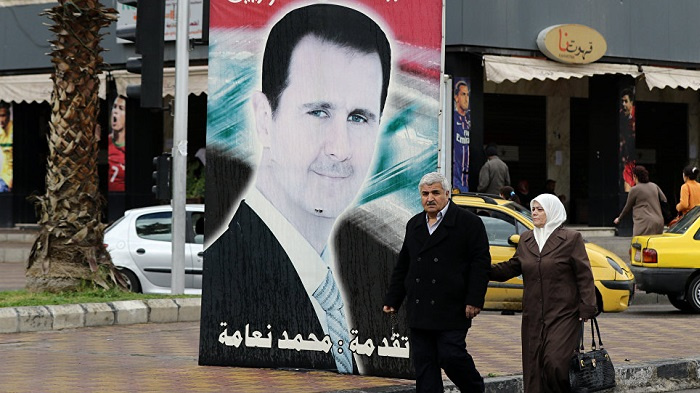Syria Peace Talks to Kick Off in Astana Amid Tehran’s Concerns

Syrian peace talks in Astana, Kazakhstan, a sequel to the liberation of Aleppo and the consequent ceasefire brokered by Iran and Russia, will kick off on Monday. Iranian officials view the talks in Astana as a potential prelude to the final resolution of the Syria file, one that provides a rare platform for Syrian sides to decide their own future after a six-year deadlock in the crisis-stricken country.
In a meeting on Wednesday, President Hassan Rouhani told Syrian Prime Minister Imad Khamis that he hoped the talks could be a beginning for real Syrian-Syrian talks, leading to a situation desirable for Syrians. “All friends of Syria want peace and stability to be restored in the country, so that the people could choose their own future,” state news agency IRNA quoted Rouhani as saying.
Deputy Foreign Minister Hossein Jaberi Ansari who heads the Iranian delegation during the talks told state-run TV on Saturday that Iran would attend the talks in full preparation. He said the talks would focus on solutions to stabilize the truce and to pave way for serious talks for sustainable peace between the Syrian government and rebel groups.
However, voices inside Iran are also hinting that Tehran may have good reasons for caution. After criticisms that Iran had been marginalized in Syria following Turkey’s involvement, several officials are now warning that the Islamic Republic should be on its toes, not to make concessions to the rebels side. On Saturday, Hossein Amirabdollahian, former Deputy Foreign Minister on Arab Affairs and current Parliament Speaker Ali Larijani’s aide for international affairs, told Syrian ambassador Adnan Mahmoud that in diplomatic solutions to the Syrian crisis, yesterday’s terrorists should not turn into today’s politicians.
A member of the parliament’s national security and foreign policy committee has also commented on the situation. The Principlist cleric Mojtaba Zolnour warned of any concession to terrorists, which would be detrimental to the whole region. Reiterating that hegemonic powers, led by the United States, spared no effort in backing the interests of Takfiri terrorist groups even though they have failed so far, he said in a reference to rumors, later denied, of US participation in the Astana talks that Western countries, spearheaded by the US, have now resorted to diplomatic talks and involvement in the political scene, after failure on the military stage. “We should not forget that several ceasefires have been established so far, but whenever the US and the West intervened, they have caught the Syrian army and the Axis of Resistance by surprise, trying to encourage the terrorists to violate the truce,” Zolnour said, speaking to Mehr News Agency on Saturday. He also implied that Turkey stands for the West in Astana talks.
In an op-ed for Iranian Diplomacy published last Wednesday, Iran’s foreign ministry senior expert Sadegh Maleki named the situation in Syria as one that could potentially bear a shock for Iran. Sadeghi warned that Syria could turn into a diplomatic 'shock' for Iran where it has too much at stake. “The Syrian crisis will not end with the conquest of Aleppo." he said. "Moscow’s conduct after the liberation of Aleppo has worried even Russia’s advocates in Iran. Moscow and Ankara have become the main axis while Iran is sidelined,” he wrote, calling for "an understanding of the intricacies of the Syrian crisis, multifaceted policies, expansion of the play radius, and pragmatism" to prevent undesirable results. He concluded the op-ed by urging Tehran to come to take into account a strategic understanding of the 900 km border shared between Turkey and Syria, different considerations reciprocated between Russia and Turkey, the duet’s position in the international system, their ties with the West, Israel, Arab states and the corresponding considerations, in order to prevent a shock.

